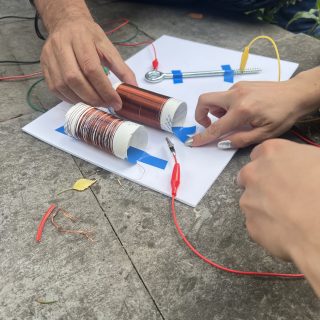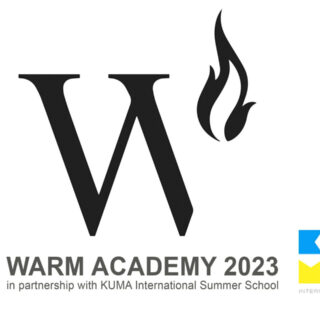Dealing with the past is part of various programs at the University of Prishtina, although there could be much more done. Here are some insights and voices the university’s faculty, collected by Arbër Selmani
October 1 this year marked the 20th anniversary of protests started in Prishtina by students who were fought by the macabre regime of that time. In Prishtina, there exists a statue of Mother Theresa, another one of Adem Jashari, that of Skanderbeg, another one reveals the face and body of Ibrahim Rugova, another that of Bill Clinton. There is no museum which covers and documents thoroughly the suffering of the people of Kosovo, which culminated with the war that began in February 1998. In the 1960s and 1980s women’s activism was part of the resistance movements in Kosovo, also – this, too, is not properly addressed.
Each of these moments deserves proper academic treatment. But it seems that each of them does not receive sufficiently powerful academic examination by university programmes in Kosovo. Apparently, such topics are seen as often alien or too far-off to be debated upon or studied. People are interested in these topics, which have shaped today’s society. Discussing these monuments in the academic and university context implies knowledge of the historic context and an analysis of it – their acceptance, but also confrontation with the sentiments they may cause today – and, to a certain degree, the introduction of this knowledge to new generations that did not experience these historic events.
Professor Shemsi Krasniqi is a lecturer at the University of Prishtina of a subject which deals with these monuments. As a lecturer for the Department of Sociology in the Faculty of Philosophy, Krasniqi lectures on communicative cultural memory – myths, folklore, ethnography, museums, social institutions and the past, monuments, family histories, artefacts, and photographs.
Fortunately, this department has managed to include aspects of dealing with the past in their curriculum. Therefore, students can learn more about the past in various ways. Often, there is a tendency to remove such topics from school or university textbooks since their interpretation follows the whims of historians and scholars of their respective countries. However, at the University of Prishtina, a group of professors have not stalled in their mission to connect education and dealing with the past.
“Dealing with the past is very complex, and there is a lot of work to be done. On the other hand, the University of Prishtina does not have funds for research and field work, for excursions or visits, for debates, conferences or meetings with students from other countries,” says Krasniqi.
It is important that students wishing to study or be better informed about the practices of dealing with the past and the construction of collective memory are involved in field work and have access to various field expeditions. Krasniqi says that during his lectures students do not hesitate to speak freely about their past or about their experience in the context of past events.
“In general, yes, although they are not really trained to think about their past and draw lessons from it. I once conducted a focus group-based research with the students from the Sociology Practice class. The topic concerned the war, specifically the 15th anniversary of the Kosovo exodus in 1999. The students told their memories as 4-to-5-year-old children, and gave extremely interesting descriptions, they offered valuable messages and realised that they and their life experiences are an important source of knowledge,” says Krasniqi.
****
In 2014, ForumZFD in collaboration with Alter Habitus and the Program of Gender Studies/Institute for Social and Human Studies at the University of Prishtina organised Memory Mapping Kosovo – a series of workshops and field-study trips as a space to learn about, to dispute or confirm, and to explore the past. For the first time, in 2014, four ateliers were organised on the topics of public and private memory, socialism and parallel education.
Jeta Rexha was one of the participants of the first edition of Memory Mapping, and of the ones that followed in subsequent years. At that time, she was in her second year of studies at the Department of Sociology. Rexha tells of how the program served as an alternative perspective on how we approach memory and studies of memory, this being the more disciplinary and critical approach.
“The various memorials we researched date back from the Ottoman times, to socialist monuments and monuments erected after the war in Kosovo. The participants went through lots of theoretical texts and visits to memorials around Kosovo. As a result, the participants themselves conducted a research mapping out the information obtained through participation in direct research”, Rexha says.
Memory Mapping Kosovo organised two rounds of events. The second one focused on the topics of the Orient, the city of Mitrovica, the salvaged, and the victims of rape in war, and the feminist approach towards cultural memory. For Rexha, participating in this program was the reason why she continues to be interested in these topics. The result of such programs, both within and outside of the university, at the initiative of professors, is a kindling of interest in the topic among their students.
“Memory Mapping Kosovo was more or less a starting point for my interest in memory studies. It was the foundation that allowed me to rediscover my curiosity about social history and how constructed or – in better words – brought it about. In fact, my curiosity was fed and was transformed into a mass of research ideas, of courage to think in a more structured way about the concepts of memory creation, about the implications stemming from external and internal factors through the existing structures,” says Rexha.
School curricula would benefit from a similar concept like Memory Mapping, she adds.
“Considering how problematic school textbooks can be, a project of this kind opens the doors to opportunities to get acquainted with alternative knowledge, and with an alternative method of study. By opposing rigid thoughts of the past, or even the mere fact of penetrating the past, the current situation created on purpose may be shaken by such initiatives, which for sure would open the doors to new ways of thinking,” concludes Rexha.
***
Linda Gusia, a sociologist and part of the Faculty of Philosophy, talks about Memory Mapping Kosovo.
“From the outset, the idea was to review the memory which is the most marginalised, and is not part of the general collective memory. We analysed forgotten or marginalised elements. This was taken into consideration because the ‘90s are very important to our identity in general; to Kosovo before and after the war,” says Gusia.
At the faculty, the Department of History teaches the subject “Oral History” and the Department of Sociology has included in its curriculum the subject “Collective Memory”. Both of these subjects substantially support the strengthening of knowledge that students acquire in the field of dealing with the past.
“I think it is necessary to discuss the past. At the university, we started sporadically discussing dealing with the past in various ways, but it is not happening in a more structured or comprehensive manner. Dealing with the past is more of an initiative of NGOs rather than a state one,” adds Gusia.
Just like Shemsi Krasniqi, Gusia says that the academy, with its difficult conditions and lack of support for research or conferences, is continuously insisting on developing the field of dealing with the experience of war in Kosovo and with collective memory.
Gusia tells of how Kosovars lack a feeling of closure and justice and how, therefore, dealing with the past is necessary for our society.
“I think there is more than one approach to forgetting, and the general approach about the past has been to move on, to establish a state, to look forward. I think this is a double-edged blade. The fact that in Kosovo around 70% of population is less than 35 years old is a good thing, as a huge part of the population does not remember the war well. But dealing critically with the past is necessary. It acts as a catalyst and is irreplaceable,” concludes Gusia.
So, even though dealing with the past is not particularly present in academic education in Kosovo for now, it seems promising that it may be more present in the future, thanks to the names mentioned in this text and thanks to others who find ways to deal with a past, in an environment which does not leave much room for academic research and study. In this way, new generations can be educated, not to forget but to deal with the past in their own way, as without it no stable future can be built.
Arbër Selmani is a freelance culture journalist and writer from Prishtina. He is a Bachelor of Marketing and his areas of interest and engagement include cultural studies, multiculturalism, dealing with the past and LGBT issues. In 2013 he was chosen as Kosovo’s journalist of the year by UNWomen and UNDP.


